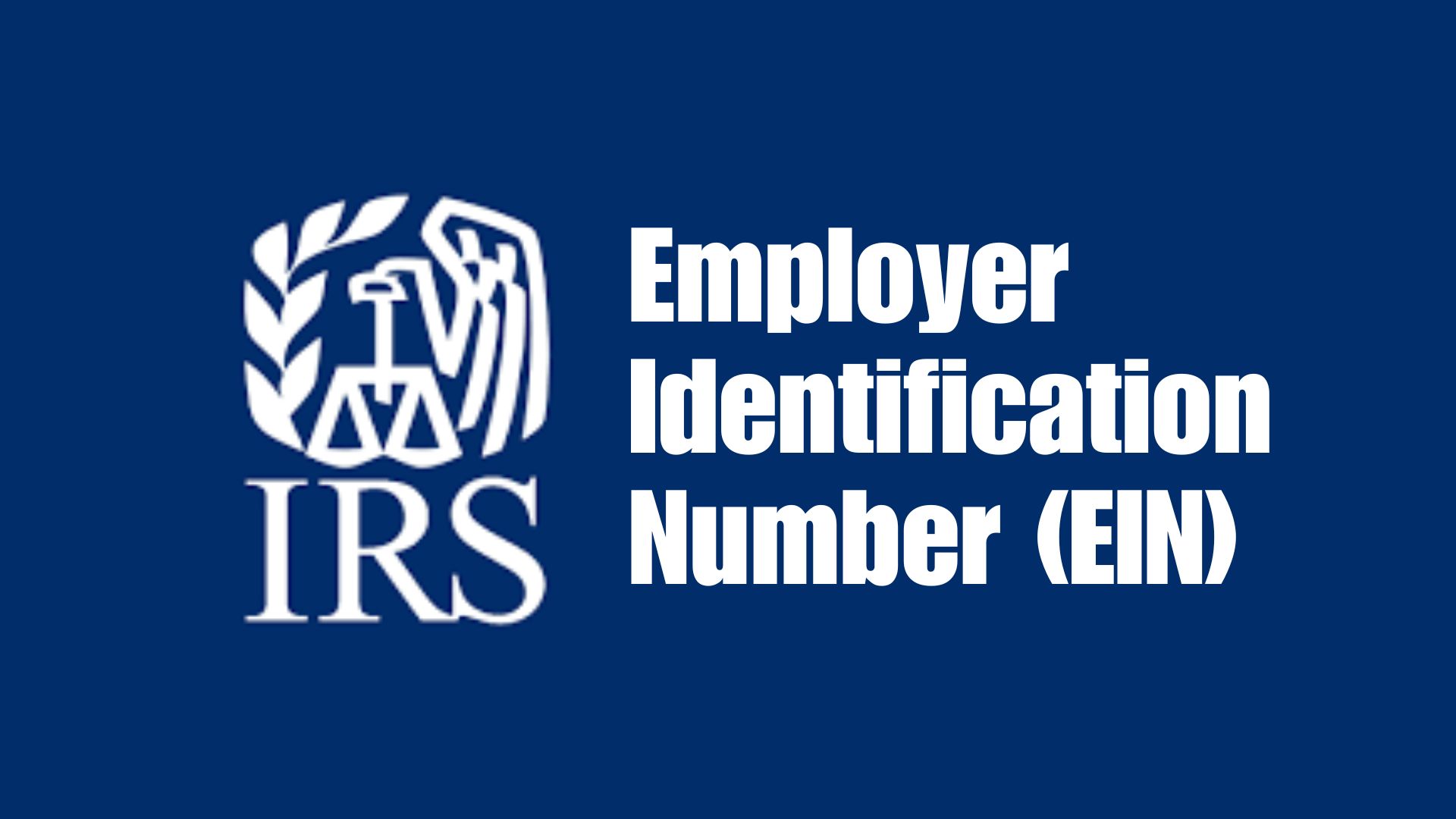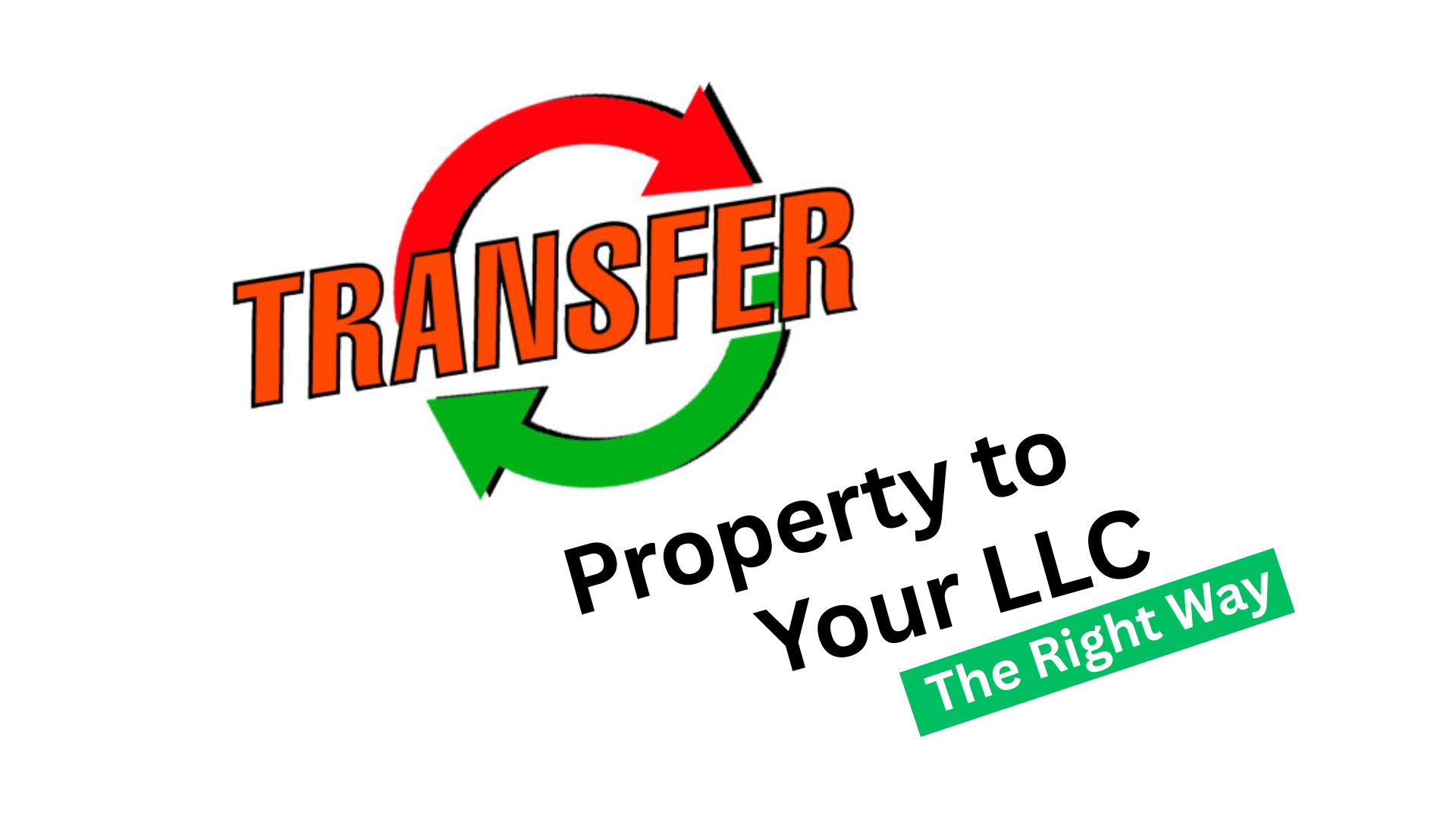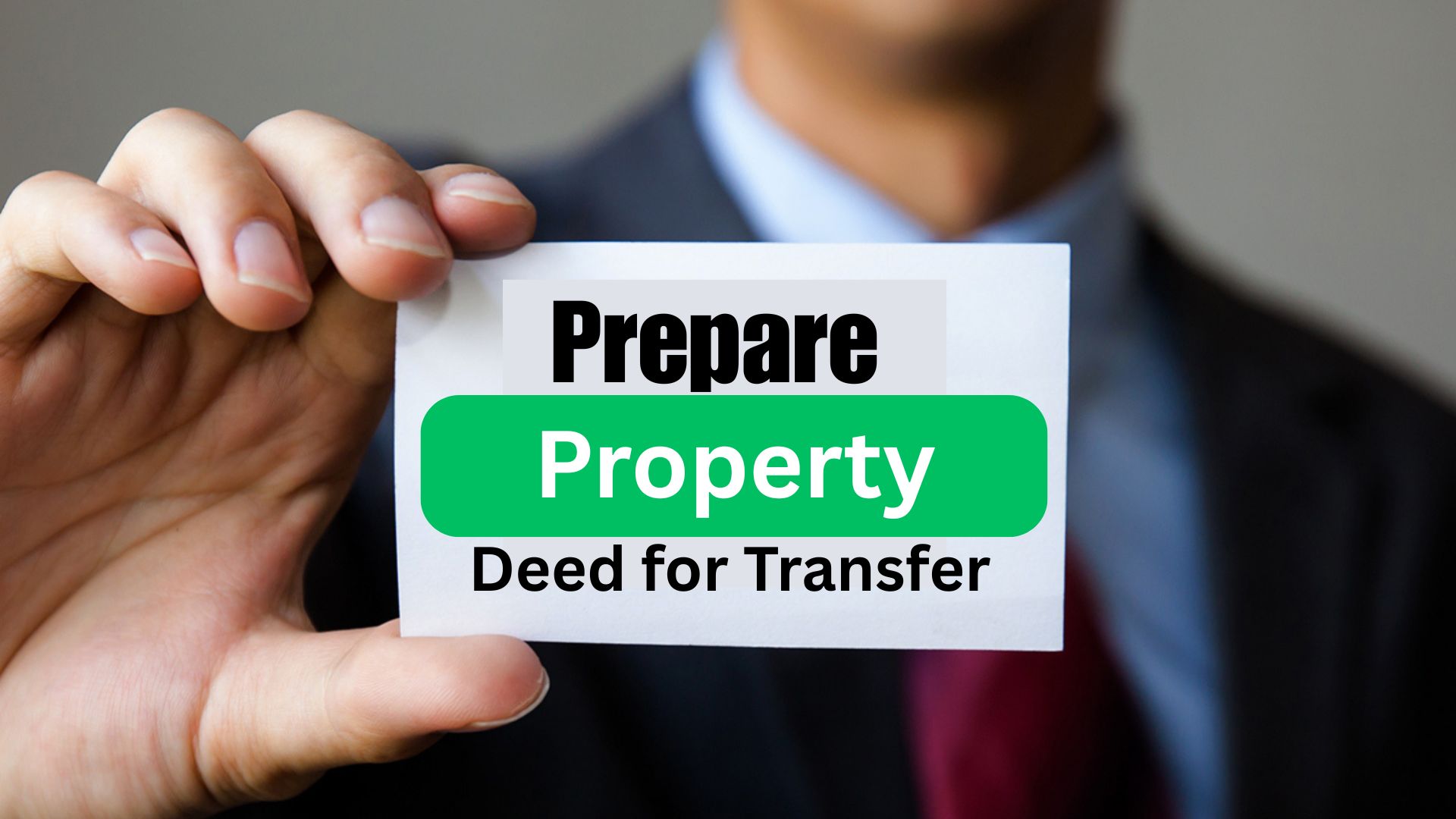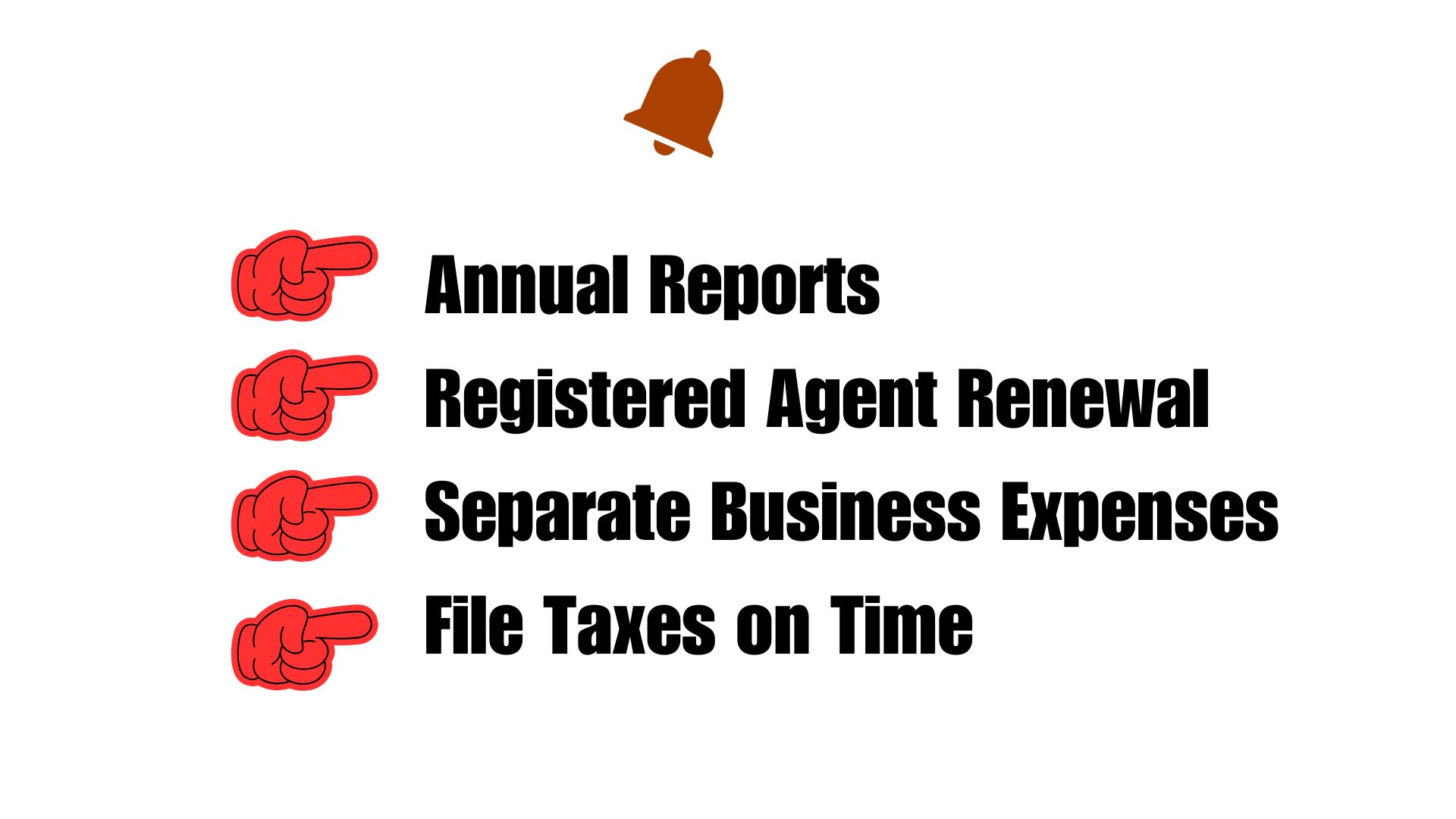Last Updated on 1 month by Komolafe Bamidele
You’ve just purchased your first investment property, excited about the steady stream of rental income it will generate.
But then, out of nowhere, a tenant sues you for an injury sustained on the property. If your property is under your personal name, your personal assets—your savings, home, and even your car—could be at risk.
This is where an LLC (Limited Liability Company) comes in. An LLC provides:
- Personal Asset Protection – This separates your personal finances from your business.
- Tax Benefits – More flexibility in choosing how you want to be taxed.
- Credibility – It looks more professional to tenants and lenders.
Now, let’s break down exactly how to set up an LLC For Real Estate Investors step by step
Step 1: Choose the Right State for Your LLC.
Should You Form an LLC in Your Home State or a Business-Friendly State?
Most real estate investors form an LLC in the state where the property is located. However, some states like Wyoming, Delaware, and Nevada offer extra benefits such as no state income tax, strong privacy protections, and reduced paperwork.
Pro Tip: If you own properties in multiple states, you may need to register your LLC as a “foreign LLC” in each state where you operate.
Zenithtechs Recommends: Wyoming Holding LLC – How to Set Up a Wyoming Holding LLC and Protect Your Wealth
Step 2: Choose Your LLC Name
Your LLC’s name should be:
✅ Unique (check your state’s business name database)
✅ Professional and relevant to real estate (e.g., “Smith Property Holdings LLC”)
✅ Compliant with state requirements (must include “LLC” or “Limited Liability Company”)
Step 3: File Your Articles of Organization
To officially register your LLC, you need to file the Articles of Organization with your state’s Secretary of State.
💰 Cost: Filing fees range from $50 to $500, depending on the state.
You can DIY the process or use a service like Bizee, which I’ve partnered with to get you an EXCLUSIVE DISCOUNT that you won’t find on their direct website.
🔥 Click here to save money with ZenBusiness!
Step 4: Appoint a Registered Agent
A Registered Agent is required for your LLC to receive legal documents on your behalf. You can:
- Appoint yourself (but this means your address becomes public).
- Hire a professional registered agent service for privacy and compliance.
✨ Bizee (formerly Incfile) offers a FREE registered agent service for one year when you form an LLC. I’ve secured a $250 savings deal for you!
👉 Form your LLC with Bizee for just $0 + state fees! Click here
Step 5: Create an Operating Agreement
An Operating Agreement is an internal document that outlines:
- Ownership structure
- Profit distribution
- Roles and responsibilities of members
- How decisions are made
Even if your state doesn’t require one, having an Operating Agreement prevents disputes and adds credibility to your LLC.
Step 6: Get an EIN (Employer Identification Number)
The EIN (like a Social Security Number for your business) is required for:
✅ Opening a business bank account
✅ Filing taxes
✅ Hiring employees (if needed)
🎯 Cost: FREE from the IRS website (www.irs.gov).
Step 7: Open a Business Bank Account
NEVER mix personal and business finances! Having a separate bank account for your LLC:
- Keeps your business legally compliant
- Helps during tax season
- Maintains liability protection
🔹 Documents Required:
- EIN confirmation letter
- LLC Operating Agreement
- Articles of Organization
Step 8: Transfer Property to Your LLC (The Right Way!)
So, you’ve set up your LLC—great! But how do you actually transfer an investment property you already own into this new business structure?
Transferring a property to an LLC involves more than just changing the name on the deed. You need to follow the proper legal process to avoid issues with lenders, insurance providers, and tax authorities.
Here’s everything you need to know to ensure a smooth property transfer while protecting your investment.
Zenithtechs Recommends: How to Get an LLC and EIN for Free – LLC 2025 Guide
Step-by-Step Process to Transfer Property to an LLC
1. Review Your Mortgage Terms (If Applicable)
Before making any changes, check if the property has an existing mortgage.
🔹 If the property is fully paid off, you’re in the clear—skip to Step 2!
🔹 If you have a mortgage, transferring the property into an LLC could trigger the due-on-sale clause.
💡 What is the Due-on-Sale Clause?
This clause allows your lender to demand full repayment of the loan if ownership of the property is transferred. Lenders include this clause to prevent borrowers from transferring ownership without notifying them.
🚨 How to Avoid the Due-on-Sale Clause:
-
Check if Your Loan is Backed by Freddie Mac or Fannie Mae: These government-sponsored mortgage entities allow transfers into LLCs without triggering the due-on-sale clause.
-
To check, visit:
-
Freddie Mac Loan Look-Up
-
-
-
Use a Land Trust: If your loan is with a private lender, consider transferring the property into a land trust before assigning the beneficial interest to your LLC. This provides legal protection while avoiding loan acceleration.
🔹 Pro Tip: Always contact your lender before transferring the property to avoid unexpected financial consequences.
2. Prepare the Property Deed for Transfer
Once you’ve confirmed that transferring your property to an LLC won’t trigger loan acceleration, the next step is executing a new deed.
There are two common types of deeds used to transfer property:
-
Quitclaim Deed – Simplifies the process but does not offer buyer protection. Best for personal property transfers.
-
Warranty Deed – Provides legal protection against past claims on the property title. Recommended for transactions between different parties (e.g., selling a property to another LLC).
📌 Steps to Draft and Sign a Deed:
-
Choose the correct deed type (Quitclaim or Warranty).
-
Include your LLC’s name as the new owner. Example: “123 Property Holdings, LLC”.
-
Sign the deed in the presence of a notary public (most states require notarization).
-
List the correct state and county jurisdiction where the property is located.
3. File the Deed with the County Recorder’s Office
After signing the deed, you must file it with the local County Recorder’s Office where the property is located.
💰 Filing Fees: Typically range from $10 to $100, depending on the county.
🔹 Why is this important?
-
Ensures public records reflect your LLC as the new legal owner.
-
Protects your liability shield, ensuring the LLC (not you) is responsible for lawsuits related to the property.
-
Prevents title disputes in the future.
📌 Pro Tip: Some states also require additional forms, such as a Transfer Tax Declaration or a Real Property Transfer Report. Check your county’s website to confirm.
Zenithtechs Recommends: How To Set Up An LTD Company For Crypto Taxes in the UK
4. Update Your Property Insurance Policy
🏡 Don’t forget to update your insurance policy!
When you transfer property ownership to an LLC, your current homeowner’s or landlord insurance policy may become void if it was issued under your personal name.
✅ Call your insurance provider and update the policy to reflect:
-
The LLC as the new owner.
-
Liability coverage that protects the LLC from property-related lawsuits.
-
Additional riders for rental properties (if applicable).
📌 Pro Tip: Consider an umbrella liability policy to provide extra protection for your investment portfolio.
5. Update Lease Agreements (If You Have Tenants)
If the property is rented, all lease agreements must be transferred from your personal name to the LLC.
📌 How to Update Tenant Leases:
-
Draft a new lease agreement listing the LLC as the landlord.
-
If tenants are on a long-term lease, you can issue a Lease Addendum notifying them of the ownership change.
-
Update rent payment details (new bank account under the LLC).
💡 Pro Tip: If you have multiple rental properties, consider using a separate LLC for each property to minimize liability risks.
Key Considerations When Transferring Property to an LLC
📌 Will This Trigger a Property Tax Reassessment?
Some states reassess property value when ownership transfers, which could increase your property taxes.
-
Example: Florida resets property tax assessments when transferring to an LLC.
-
Solution: Consult a real estate attorney or tax expert to see if your state offers exemptions for asset protection transfers.
📌 Will There Be a Transfer Tax?
-
Some states charge a transfer tax or recording fee when transferring property.
-
Certain exemptions may apply if you own the LLC and property personally before transfer.
📌 Should You Get Legal Assistance?
-
If you own multiple properties or have an outstanding mortgage, hiring a real estate attorney can prevent costly mistakes.
-
ZenBusiness and Bizee offer LLC formation + legal guidance, making the process easier.
🔥 Get your LLC for $0 with Bizee!
Step 9: Maintain Your LLC (Compliance & Renewals)
Annual LLC Requirements:
✅ Annual Reports – Some states require a report + fee (e.g., Florida: $138, California: $800).
✅ Registered Agent Renewal – If using a third-party service.
✅ Separate Business Expenses – Keep a clean paper trail.
✅ File Taxes on Time – Work with a CPA to maximize deductions.
Staying compliant protects your LLC and keeps it legally active.
Bonus: What If You Have a Mortgage? (Avoiding the Due-On-Sale Clause)
🚨 WARNING: Transferring a mortgaged property to an LLC could trigger lender acceleration.
Solution: Use a Land Trust
A Land Trust shields your property transfer while maintaining mortgage compliance.
✅ Transfer property to a Land Trust first.
✅ Then, assign the beneficial interest to your LLC.
✅ Keeps your lender happy while protecting your asset.
Final Thoughts: Should You DIY or Use a Formation Service?
You can set up an LLC yourself, but it takes time and effort. If you want an easier, more affordable solution, use a formation service:
💰 Bizee – $0 LLC formation + free Registered Agent for a year!
🔹 Which is the best LLC for you?
| Feature | ZenBusiness | Bizee |
|---|---|---|
| Cost | FREE + state fees | FREE + state fees |
| Registered Agent | Paid Add-on | FREE (1st year) |
| Tax Consultation | No | YES (30 min FREE) |
| Business Tools | Yes | Yes |
| Customer Support | Excellent | Great |
🎯 For the BEST overall value, I recommend Bizee.
🚀 Ready to Protect Your Investments? Start Your LLC Today!
So, what are you waiting for? Whether you’re a new or experienced real estate investor, forming an LLC is one of the smartest moves you can make.
🔹 Start your LLC with ZenBusiness (Save $$$!)
🔹 Get your LLC for $0 with Bizee!
🔥 Lock in your savings today and start protecting your real estate empire!
Discover more from Zenith Techs
Subscribe to get the latest posts sent to your email.








